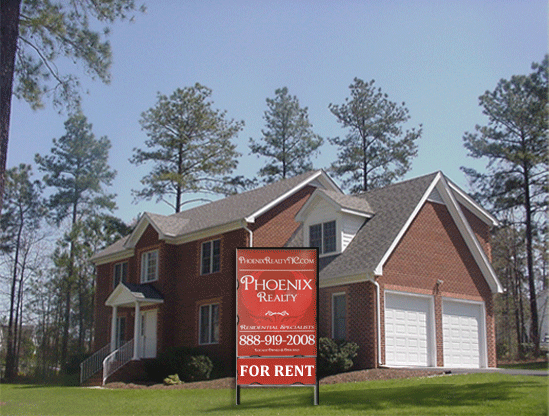Can t Sell Your Home Rent It
Post on: 14 Сентябрь, 2015 No Comment

A homeowner who is able to sell a property at the asking price has the potential to reap a profit, but what happens when an individual is having trouble unloading a property? In this case, it might make more sense for the homeowner to keep the home, but rent it out to cover the bills. (To read more about selling your home during a downturn, see Selling Your Home In A Down Market and Closing A Real Estate Deal In A Bad Housing Market .)
But wait. If you’re considering renting out a property rather than getting rid of it, know that this isn’t a quick-fix option. There are benefits to becoming a landlord, but there are also a number of very costly pitfalls. Read on to find out when it pays to rent out your property and how you can cash in.
The Benefits of Renting Your Abode
There are a number of reasons why a homeowner may prefer to rent out his or her home:
- A Sluggish Economy: In a sluggish local economy, the odds that the homeowner will receive a bid close to the asking price are not likely. Renting out the home will provide the homeowner with supplemental income, while also providing some time in which housing prices may rebound. This would allow the homeowner to get a better price for the house when he or she finally does sell.
- Property Upgrades: If the property could use some improvements before it is sold, renting it out could provide the time and income to do this. Repairs are generally tax-deductible for rental property owners.
- Life Upgrades: Homeowners that own their homes outright (their mortgages are already paid off) may find that renting out a home in a slow real estate market can provide financing for another venture.
- Market Timing: A homeowner might want to rent while holding out for a higher profit on the sale of the home. Suppose an owner would like to sell his home and could do so now for a small profit. But he thinks that six months down the line, the demand for property could increase dramatically, resulting in a higher selling price. In this instance, renting out the home for those months may help cover some or all of the mortgage and taxes, while providing the homeowner with a chance to sell at those later numbers.
In these instances, a renter provides income to cover the homeowner’s mortgage while the property is being worked on, or until the economic cloud lifts. This way, the homeowner can reap the benefits both of renting and of selling the property. (Other than garnering extra income, there are some tax benefits to renting your house as well. Read Tax Deductions For Rental Property Owners to learn more.)
The Drawbacks of Being a Landlord
Renting a home isn’t always as simple or as glorious as it sounds. In fact, there may be a few sticking points to consider. (Read Top 10 Features Of A Profitable Rental Property to find out what factors you should weigh when deciding to rent your house.)
Some examples of renting negatives include:
- Having strangers in your home. Many people don’t feel comfortable about this, and it will generally add stress to their lives.
- Being a full-fledged landlord isn’t always an easy task. There will be regular maintenance that needs to be done on the property, and you (as the owner) are responsible for it.
- Some renters may not pay their rent on a timely basis — or at all — leaving you covering costs and payments in their absence.
- Property taxes tend to rise over the years, which could have an impact on profit.
Renting Your Home in Five Steps
(Investing in rental property can generate serious income, but be sure to read Tips For The Prospective Landlord to learn some more tips for making the process easier.














